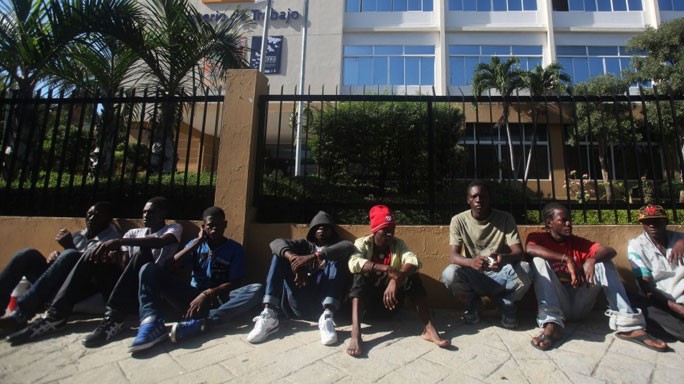On Monday, Yayine Mesilus was snatched off the streets of her small village in the Dominican Republic and taken back to Haiti, from where she had migrated eight years ago with her little brother to look for work.
That, by the government’s own account, was not supposed to have happened. Ms. Mesilus, 29, and other migrant workers in her situation were supposed to have until Wednesday night to register with the Dominican authorities before being deported.
Yet for the last several months, under so-called Operation Shield, migrant workers have been routinely seized and expelled. Though this particular operation is meant to single out only those illegal migrants who have turned up since late 2011, the process is never clean, as seen in the case of Ms. Mesilus.
Haitian migrant workers demonstrated in front of the Haitian Embassy in Santo Domingo, Dominican Republic, this month.Haitian Workers Facing Deportation by Dominican NeighborsJUNE 16, 2015
Ms. Mesilus, who was forced to leave behind her brother, Clever, who is now 18, stands as an example of what many fear will come to pass starting Thursday, when a much larger, broad-scale deportation of Haitian migrant workers is set to begin. As that sweep unfolds, those who have complied with the law, even those born on Dominican soil, may be arbitrarily tossed out as well.
Consider: Ms. Mesilus herself had started the registration process, which should have protected her from deportation for another 45 days.
“I was thrown back here because I was not carrying my document to prove I was already trying to register,” she said in a telephone interview from Fond Parisien, Haiti. “They didn’t even give me the chance to explain what was happening,”
The impending deportations stem from a law passed last year that requires all foreign-born workers to register with the government within a year or face deportation. The government has said it wants merely to get a grip on its migrant work force, and has promised to open a path to naturalization for those who register.
The New York Times





